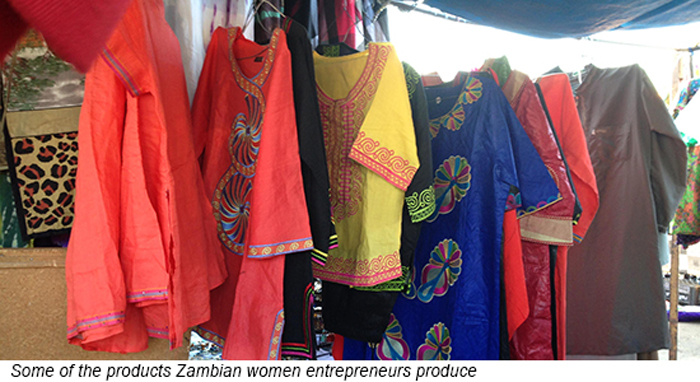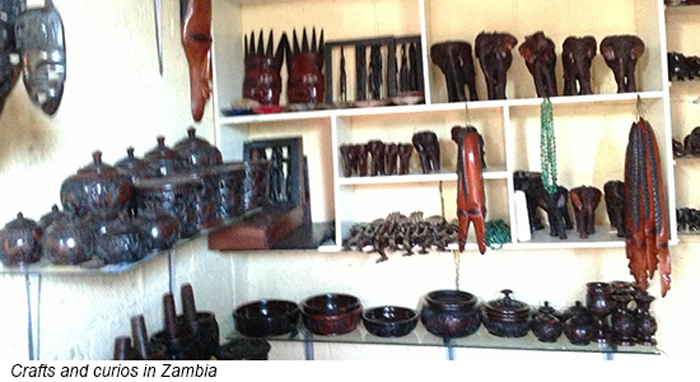FIMS News
Contact Information
Dean's Office
fimsadmin@uwo.ca
519-661-3720
FIMS & Nursing Building
Rm 2050
Graduate Student Services
fims-gradservices@uwo.ca
519-661-4017
FIMS & Nursing Building
Rm 2020
Undergraduate Student Services
macs@uwo.ca
519-661-3542
FIMS & Nursing Building
Rm 2001
Field Experience in Zambia: Challenges
By Daniel Mumba, July 24, 2013
Given the numerous development challenges that Africa is beset with, Africa is a popular destination for most students and experts interested in development work. However, collecting data and going through the experience of fieldwork in this part of the world can be challenging. In this brief, I will share with you some of the challenges I have faced since I began my fieldwork in Zambia, one of the countries in the southern part of Africa.
I am doctoral candidate in the Faculty of Information and Media Studies at Western University in Canada. My research study, which is financially supported by the International Development Research Centre (IDRC) focuses on women entrepreneurs’ access to information and use of Information and Communication Technologies (ICTs) in Zambia. Most of my informants for my study are women who are running small-scale enterprises, and are in various sectors of the economy. The following are some of the challenges or difficulties I have been experiencing since I started data collection exercise here in Zambia.

Attitude of some informants
In as much as women entrepreneurs are excited and enthusiastic about my study, it hasn’t been easy dealing with some of the respondents. Most respondents do not keep appointments and promises. When you schedule an appointment for an interview with prospective interviewees, they usually arrive very late, or if you agree to meet them at their office, they will make you wait for even as long as an hour into the appointment time. If they change their plan and decide not to meet, they will not inform you about it, and when you try to call to remind them about the appointment, either their phone is off or won’t pick up the phone. For most of them, missing or not honoring an appointment is something “normal”. So to get round this problem, I have resorted to making appointments with several prospective respondents in a day in the hope that some of them could still make it for appointments. This plan seems to be working well for me.
Transport networks
The other challenge is that Lusaka, the capital city, which is the site for my fieldwork, is highly populated. The city has a huge population of residents, but has very few roads and so it is heavily congested with traffic and pedestrians all the time except at night. As a result, it makes movements very difficult, especially if appointments are scheduled in different areas of the city. To make matters even worse, most of the roads are in bad condition. Worse still, the Highway Code is not respected by some motorists causing delays that adversely affect not only fieldwork schedule and planning, but adds to the cost of research as well.

Disruptions in electricity supply
Electricity is another big problem in Lusaka as there is what they call “load shedding” every other day. The national electricity company, Zambia Electricity Supply Corporation (ZESCO) has a deliberate program in place to turn off electricity supply to homes and organizations for extended hours, bringing businesses and other activities that depend on electricity to a halt. This affects research work especially if you have to go through your notes and prepare for the next day. This also causes disruptions in Internet and telephone services, thereby affecting some aspects of our work in the field. This program by ZESCO is aimed at rationing power, as the demand for electricity is more than what the power company can supply. This has been going on for several years now, but there is no clear information as to when this problem will be resolved.
Suspicion and apprehension
The other issue is that we are having a hard time convincing some respondents to sign letters of consent, as some of them are apprehensive about signing documents. They are suspicious of any document that requires them to append their signatures. Even when you have provided them with a Letter of Information that explains in detail the purpose and nature of the study, some of them still refuse to sign, but prefer and are willing to fill out questionnaires without signing the letter of consent. We also have challenges getting some respondents to respond to questions on government policies or related issues, as they do not want to be quoted or misquoted. So in order not to provoke any negative sentiments, we are ensuring that questions are carefully explained, so as to provide a good understanding of the questions to eliminate any doubts.
However, despite the challenges, fieldwork has been progressing well and is on course, as the benchmarks are being met.


